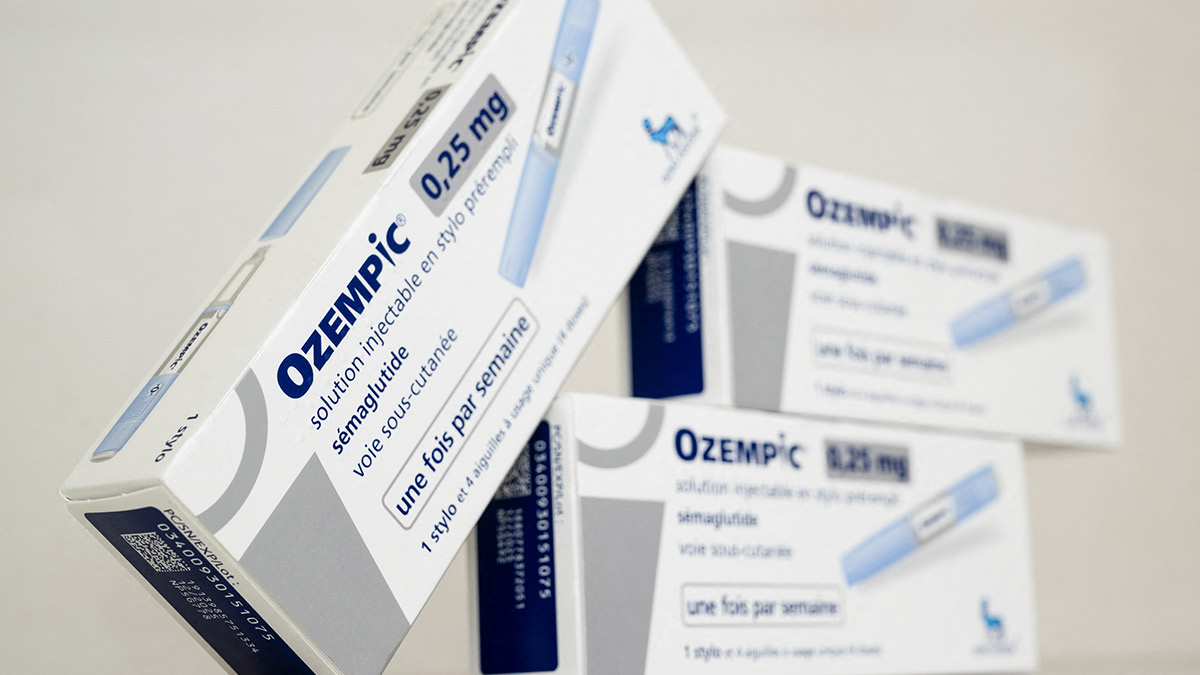WHO warns against fake batches of Ozempic

This picture taken on October 23, 2023, shows Ozempic medication boxes, an injectable antidiabetic drug, in a pharmacy in Riedisheim, eastern France. —photo by Sebastien Bozon/Agence France-Presse
MANILA, Philippines — Since he switched to a “healthier lifestyle” this month, Markie, a 33-year-old public school teacher, has been noticing a wave of advertisements assuring him of a “safe and fast” way to lose weight.
One ad he found on social media “offered a drug with the same active ingredient as Ozempic,” the brand name of medicine used to treat diabetes and obesity in some countries. It has gained popularity among people who want to slim down, leading to a global shortage in supply since 2022, including in the Philippines.
READ: My life on Ozempic, the so-called weight-loss ‘miracle drug’
According to the ad, those who avail themselves of the offer for a one-time payment of P7,800 will be injected with the drug once a week for six weeks, subject to the approval of a doctor who can be consulted online. Once approved, the medicine will be delivered to the patient’s home through a “free and discreet” service.
“It’s tempting, but I did not go through with it because I want my weight loss journey to be natural,” Markie told the Inquirer on Sunday.
In its alert on June 19, the World Health Organization (WHO) warned about fake stocks of Ozempic (generic name: semaglutide).
READ: Risking lives for vanity
Multinational company Novo Nordisk confirmed that three batches of the popular drug “misrepresent their identity and source as they were not manufactured” by the company.
‘Serious risks’
Batch No. LP6F832 is not recognized, the company said, while the combination of batch No. NAR0074 with serial No. 430834149057 does not correspond with genuine manufacturing records. The third batch with number MP5E511 is genuine but the product is falsified.
“The use of falsified Ozempic may result in the ineffective treatment of patients due to incorrect dosage, contamination with harmful substances, or use of unknown or substituted ingredients,” WHO said. “It may pose other serious risks to health because of its subcutaneous injection administration that could be life-threatening.”
In the Philippines, Ozempic has been registered with the Food and Drug Administration (FDA) since 2020, although diabetes patients have also complained about the shortage in stocks, forcing some to turn to the black market.
While a single dose of Ozempic is sold in big-chain drugstores for P7,650, the price can go up in online stores and unregulated marketplaces on social media.
On the other hand, a 500 mg tablet of metformin, which is the main first-line medication for the treatment of type 2 diabetes, is sold for less than P4.
FDA spokesperson Pamela Sevilla said earlier that Novo Nordisk had informed authorities in 2022 about a worldwide shortage of the drug due to an “unexpected increase in demand due to off-label prescribing” for weight loss.
Off-label prescribing happens when a drug is prescribed to treat conditions other than those approved by the FDA. It is a legal and regular occurrence, particularly in the treatment of uncommon diseases and conditions.
“But the FDA has no jurisdiction to regulate the decision of doctors if they use their clinical judgment to prescribe Ozempic for other health conditions, aside from diabetes,” Sevilla said.
The FDA instead called on its parent agency, the Department of Health, as well as the Philippine Medical Association, to regulate how doctors prescribe Ozempic for off-label use.














